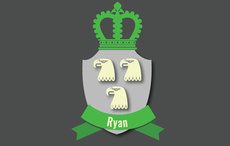For the month of March (also known as Irish American Heritage Month) IrishCentral is tapping into the heartbeat of the Irish American community. The Unsung Heroes series features inspiring individuals from across the US who do extraordinary work in their communities and respective fields. From advocates to artists, from local legends to dedicated educators; from a high school baseball team to dynamo nuns in their 80s, these people are making a difference and to them we tip our hats in thanks.
Lynne Donegan:
When Lynne Donegan's niece, Colleen, who was training for the Chicago marathon at her local gym suffered sudden cardiac arrest and died, Lynne became an advocate for training to use and installation of Automated External Defibrillators (AEDs) in public venues.
Colleen O’Sullivan was just 30 years old and a health care lawyer and a graduate of Notre Dame and John Marshall Law School.
Her aunt Lynne Donegan helped resurrect an old bill in the Illinois State Assembly and in 2005 the Colleen O'Sullivan Law was signed, requiring every physical fitness facility to have an AED on site. The law further helped pass the new mandate that AEDs be installed on all Metra commuter trains in Chicago. This has helped save numerous lives and also raised awareness of cardiac arrest among the community.
A study**
http://www.cardiacscience.com/aeds-in-public-places-make-cardiac-arrest-survivable/
of more than 12,000 sudden cardiac arrest (SCA) victims in 10 large North American cities found that 79% of the SCA victims who suffered SCA in public had the type of cardiac arrest, known as ventricular tachycardia, that can be corrected by shock from an AED. Among those victims who received AED shock, 34 percent survived and were able to be discharged from the hospital.
“Our research clearly shows that the chances of surviving a shockable cardiac arrest are best when someone publicly witnesses it happening, a bystander uses CPR to keep blood flowing to the brain and other key organs, and an AED can be applied to electrically restart the heart,” Johns Hopkins cardiologist Myron “Mike” Weisfeldt, M.D., said.
Here's the facebook page she runs, which is active.
https://www.facebook.com/pages/The-Colleen-OSullivan-Law/108200012538819
To read about yesterday's Unsung Hero, the nun who is helping people rebuild their lives after prison, click here.
http://www.irishcentral.com/roots/The-nun-helping-women-build-new-lives-after-prison.html#ixzz2vmwggSig
and here's video
<iframe width="560" height="315" src="//www.youtube.com/embed/vsxnN7k7G4w" frameborder="0" allowfullscreen></iframe>)
For the month of March (also known as Irish American Heritage Month) IrishCentral is tapping into the heartbeat of the Irish American community. The Unsung Heroes series features inspiring individuals from across the US who do extraordinary work in their communities and respective fields. From advocates to artists, from local legends to dedicated educators; from a high school baseball team to dynamo nuns in their 80s, these people are making a difference and to them we tip our hats in thanks.
When Lynne Donegan's niece, Colleen, who was training for the Chicago marathon at her local gym suffered sudden cardiac arrest and died, Lynne became an advocate for training in the use and installation of Automated External Defibrillators (AEDs) in public venues.
Colleen O’Sullivan was just 30 years old, a health care lawyer and a graduate of Notre Dame and John Marshall Law School.
Her aunt Lynne Donegan helped resurrect an old bill in the Illinois State Assembly and in 2005 the Colleen O'Sullivan Law was signed, requiring every physical fitness facility to have an AED on site. The law further helped pass the new mandate that AEDs be installed on all Metra commuter trains in Chicago. This has helped save numerous lives and also raised awareness of cardiac arrest among the community.
A study of more than 12,000 sudden cardiac arrest (SCA) victims in 10 large North American cities found that 79% of the SCA victims who suffered SCA in public had the type of cardiac arrest known as ventricular tachycardia, which can be corrected by shock from an AED. Among those victims who received AED shock, 34 percent survived and were able to be discharged from the hospital.
“Our research clearly shows that the chances of surviving a shockable cardiac arrest are best when someone publicly witnesses it happening, a bystander uses CPR to keep blood flowing to the brain and other key organs, and an AED can be applied to electrically restart the heart,” Johns Hopkins cardiologist Myron “Mike” Weisfeldt, M.D., said.
There is an active Facebook page run by Donegan where more information can be found.
To read about yesterday's Unsung Hero, the nun who is helping people rebuild their lives after prison, click here.
)




Comments